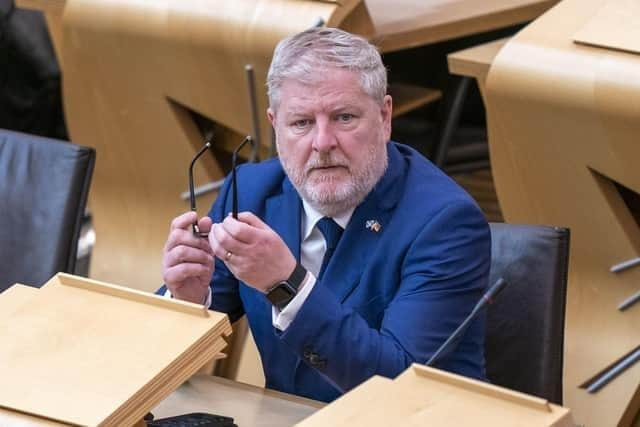Analysis: SNP's defence plans in an independent Scotland leave many questions unanswered
Defence and security in an independent Scotland is one of the hot topics of the constitutional debate.
The SNP has long argued for the removal of nuclear weapons from Scotland’s soil. However, it also wants to join Nato, the defence alliance backed by nuclear capability. Its new policy paper points out that only a minority of Nato members host nuclear weapons.
Advertisement
Hide AdAdvertisement
Hide Ad“Finland’s accession to Nato in April 2023 highlighted that hosting nuclear weapons is not a precondition for membership,” it says.


This is true. But there is also a very obvious difference between countries that do not have nuclear weapons, and those that do, but want to remove them from their territory.
Nato is explicit that nuclear weapons are “the foundation of the alliance’s collective security”. Only three members have nuclear deterrents: the UK, the US and France.
Would it look kindly on a newly independent Scotland disrupting Trident by seeking to remove it from its territory? The lack of obvious alternative sites has been well covered.
Asked where Trident could move to, Angus Robertson, the external affairs secretary, effectively said that was the UK government’s problem.
"How the UK government will decide on its priorities after Scotland becomes a sovereign state is, with the greatest of respect, and I mean that genuinely, for the UK government,” he told journalists.
He insisted Nato would want Scotland due to its “geostrategic location”, adding: “The idea that Nato would not wish to welcome a country that wanted to participate, was prepared to deliver on the 2 per cent spending that is required to be a Nato member state, doing so when the North Atlantic is to our west, the Iceland gap is to our north and the North Sea is to our east, just doesn’t stand up to any serious scrutiny whatsoever.”
Mr Robertson would not give any preferred timescales for the removal of Trident, other than to say “as soon and as safely as possible”.
Advertisement
Hide AdAdvertisement
Hide AdElsewhere, the new paper says the armed forces of an independent Scotland “would comprise land, sea, and air components”, but a “defence and security review” would determine its precise “shape and size”. A new Scottish Security and Intelligence Agency would also be established.
None of this, needless to say, can be done on the cheap. But Mr Robertson was unable to put a price tag on it.
For those seeking answers, plenty of questions remain.
Comments
Want to join the conversation? Please or to comment on this article.
